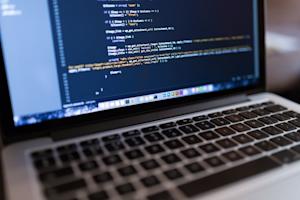In today's fast-paced, technology-driven world, remote maintenance is revolutionizing the way organizations manage their equipment and systems. By leveraging the power of remote maintenance software, businesses can significantly reduce downtime, increase efficiency, and stay competitive. But how can you harness this game-changing technology to its fullest potential? In this article, we'll dive into the essentials of remote maintenance, explore the top software solutions, and share expert tips to help you master this vital aspect of modern maintenance management. Get ready to transform your operations and unlock new opportunities for growth!
What is Remote Maintenance Software
Definition of remote maintenance
Remote maintenance, also known as computer remote maintenance, refers to the process of monitoring, diagnosing, and resolving issues with equipment, machinery, or systems from a remote location. This method allows technicians and engineers to perform maintenance tasks without the need for physical presence, resulting in reduced downtime, increased efficiency, and lower operational costs.
How does remote maintenance work?
Remote maintenance works by leveraging advanced technologies such as the Internet of Things (IoT), cloud computing, and specialized software tools that enable real-time data collection and analysis. IoT devices and sensors collect crucial data from equipment and transmit it to a centralized platform, where remote maintenance software processes the data, identifies potential issues, and recommends appropriate actions. Technicians and engineers can then access the platform to monitor equipment performance, diagnose problems, and provide remote assistance or coordinate on-site repairs when necessary.
The role of remote maintenance software in modern industries
Remote maintenance software plays a pivotal role in streamlining and optimizing maintenance processes across various industries. It allows organizations to:
Minimize downtime and increase productivity by enabling timely identification and resolution of issues.
Reduce maintenance costs by limiting the need for on-site personnel and travel expenses.
Enhance safety by mitigating risks associated with equipment malfunctions and human error.
Implement predictive maintenance strategies by leveraging data-driven insights and machine learning algorithms.
Industries Improving Efficiency with Remote Maintenance Software
Remote maintenance software has proven beneficial across a wide range of industries, including:
Manufacturing: Monitoring and maintaining production equipment to reduce downtime and improve overall efficiency.
Energy and utilities: Ensuring the smooth operation of power generation and distribution systems, minimizing the risk of outages and service disruptions.
Healthcare: Remotely monitoring and maintaining medical equipment to guarantee optimal performance and patient safety.
Transportation and logistics: Ensuring the proper functioning of fleet vehicles, aircraft, and other transportation assets to minimize delays and maximize efficiency.
Information technology: Providing remote support for computer systems, networks, and other IT infrastructure components to maintain optimal performance and security.
Key features to look for in remote maintenance software
When evaluating remote maintenance software options, consider the following key features:
Real-time monitoring and diagnostics: The ability to collect and analyze data in real-time is crucial for timely issue identification and resolution.
Predictive maintenance capabilities: Advanced analytics and machine learning algorithms can help identify potential issues before they escalate into costly breakdowns.
Integration with IoT devices and sensors: Seamless integration with existing IoT infrastructure ensures accurate data collection and transmission.
User-friendly interface: An intuitive interface makes it easier for technicians and engineers to navigate and use the software effectively.
Secure data storage and transmission: Robust security features are essential for protecting sensitive information and maintaining regulatory compliance.
Evaluating your organization's remote maintenance requirements
Before selecting a remote maintenance software solution, consider the following factors:
Your organization's size, industry, and maintenance needs.
The complexity and connectivity of your equipment and systems.
The level of expertise and resources available within your maintenance team.
Your budget and the potential return on investment (ROI) of implementing a remote maintenance solution.
Choosing the Right Remote Maintenance Software
Comparing top remote maintenance software options
Numerous remote maintenance software solutions are available on the market, each offering unique features and capabilities. Some popular options include Splashtop, TeamViewer, AnyDesk, and ConnectWise ScreenConnect.
Splashtop is a great choice if you're looking for a remote maintenance software that is affordable, safe and that includes a large variety of important functions. Here is an overview and evaluation of the most important features:
Real-time monitoring and diagnostics: Splashtop Remote Support provides real-time monitoring and diagnostics capabilities, allowing technicians to view system metrics, check device status, and monitor network activity in real-time. This helps them identify potential issues and troubleshoot problems quickly.
Predictive maintenance capabilities: While Splashtop Remote Support does not provide specific predictive maintenance capabilities, its real-time monitoring and diagnostic features can help identify potential issues before they become critical. This can help technicians perform maintenance tasks proactively and prevent costly downtime.
Integration with IoT devices and sensors: Splashtop Remote Support does not integrate directly with IoT devices and sensors. However, the software can be used to remotely access and control devices that are connected to an IoT network, allowing technicians to perform maintenance tasks without the need for on-site visits.
User-friendly interface: Splashtop Remote Support is designed to be user-friendly, with a simple and intuitive interface that makes it easy for technicians to navigate and perform maintenance tasks. The software also includes a range of helpful features, such as chat and file transfer, to help facilitate communication and collaboration.
Secure data storage and transmission: Splashtop Remote Support provides secure data storage and transmission capabilities, with 256-bit AES encryption and SSL/TLS protocols for secure remote connections. The software also includes features like two-factor authentication and device authentication to ensure that only authorized users can access remote devices. Overall, Splashtop Remote Support has a strong security framework in place to protect sensitive data.
Splashtop Remote Support pricing is competitive compared to other remote maintenance tools in the market. It offers different pricing plans based on the number of technicians and devices that need to be supported. Here's a brief comparison of Splashtop Remote Support pricing with some other popular remote maintenance tools:
TeamViewer: TeamViewer is a popular remote maintenance tool that offers a range of features, including remote access, file transfer, and remote printing. Its pricing plans start at $$610.80 per year for the Business plan.
LogMeIn: LogMeIn is another popular remote maintenance tool that offers features like remote access, file transfer, and remote printing. Its pricing plans start at $$954.99 per year for up to 2 computers and can go up to $$2,594.96 per year for up to 25 computers.
ConnectWise ScreenConnect: ScreenConnect is a remote maintenance tool that offers features like remote access, file transfer, and chat. Its pricing plans start at $$516 per year for a single technician.
Overall, Splashtop Remote Support is priced competitively compared to other remote maintenance tools and provides a comprehensive set of features that can help businesses manage and maintain devices remotely.
Considerations for compatibility and scalability
When choosing remote maintenance software, ensure it is compatible with your existing systems and infrastructure. This includes compatibility with various operating systems, IoT devices, and sensors. Additionally, consider the software's scalability, as your organization's needs may evolve over time. The ideal solution should be capable of growing with your business and accommodating future changes in your maintenance processes and technology.
Assessing security features and data protection capabilities
Security is a critical aspect of any remote maintenance solution. Evaluate each software's security features, such as data encryption, secure transmission protocols, and user authentication mechanisms. It is essential to ensure that your chosen solution complies with industry-specific regulations and protects sensitive data from unauthorized access or tampering.
Best Practices for Implementing Remote Maintenance Software
Integrating remote maintenance software with existing systems
Successfully implementing remote maintenance software involves integrating it with your current systems and processes. This may include connecting the software to your IoT devices and sensors, integrating it with other business tools, and configuring alerts and notifications for optimal performance. Carefully plan the integration process, and consider seeking assistance from experts or the software provider to ensure a smooth transition.
Training and supporting your team
To maximize the benefits of remote maintenance software, it is crucial to provide comprehensive training and support for your maintenance team. This may involve creating user-friendly manuals, offering hands-on training sessions, and providing ongoing access to expert advice and assistance. Encourage team members to share their experiences and best practices with one another, as this fosters a collaborative learning environment.
Establishing a proactive maintenance strategy
Remote maintenance software enables organizations to adopt a proactive approach to equipment maintenance. By leveraging real-time data and predictive analytics, you can identify potential issues before they escalate into costly breakdowns. Develop a well-defined maintenance schedule and establish clear roles and responsibilities for remote and on-site teams to ensure seamless collaboration and effective issue resolution.
The Future of Remote Maintenance
Emerging technologies and trends in remote maintenance
The remote maintenance landscape is continuously evolving, driven by advancements in technology and changing industry needs. Some emerging trends and technologies to watch for include:
Augmented reality (AR): AR can enhance remote maintenance by providing technicians with real-time, visual guidance and information overlays, improving efficiency and reducing the need for on-site visits.
Artificial intelligence (AI) and machine learning: These technologies can further refine predictive maintenance capabilities, enabling more accurate issue identification and resolution.
5G connectivity: The rollout of 5G networks can provide faster data transmission speeds and more reliable connections, enhancing remote maintenance capabilities.
Potential impact on the maintenance workforce
The increasing reliance on remote maintenance may have significant implications for the maintenance workforce. While some tasks may become automated, there will still be a need for skilled technicians and engineers to analyze data, make informed decisions, and perform complex maintenance tasks. Emphasis on continuous learning and skill development will be essential for maintenance professionals to stay relevant in this rapidly evolving landscape.
Opportunities for growth and innovation in remote maintenance
As remote maintenance continues to gain traction across industries, numerous growth and innovation opportunities may arise. Companies can leverage remote maintenance to expand their service offerings, improve customer satisfaction, and gain a competitive advantage. Additionally, the increasing demand for remote maintenance solutions may drive further technological advancements and fuel the development of new tools and applications.
Choose Splashtop for Seamless and Secure Remote Maintenance
In conclusion, mastering remote maintenance software is crucial for organizations aiming to optimize their maintenance processes and maintain a competitive edge in 2026 and beyond. By understanding the fundamentals of remote maintenance, carefully identifying your organization's unique needs, and diligently implementing best practices, you can unlock the full potential of remote maintenance software to transform your business operations.
As we look toward the future of remote maintenance, it's essential to stay informed about emerging technologies and trends, invest in workforce development, and seize opportunities for growth and innovation. Successfully navigating this rapidly evolving landscape will position your organization for long-term success.
Among the various remote maintenance software options available, Splashtop stands out as the best choice for many organizations. With its robust features, user-friendly interface, and exceptional security capabilities, Splashtop is designed to meet the diverse needs of businesses across different industries. By choosing Splashtop as your remote maintenance solution, you can ensure that your organization is well-equipped to tackle the challenges of modern equipment maintenance and capitalize on the opportunities that remote maintenance offers.
To experience the benefits of Splashtop firsthand, consider signing up for a free trial. This will allow you to test the software's capabilities and determine if it's the right fit for your organization's remote maintenance needs. By investing time and effort into mastering remote maintenance software, you can position your business for increased efficiency, reduced downtime, and long-lasting success.





